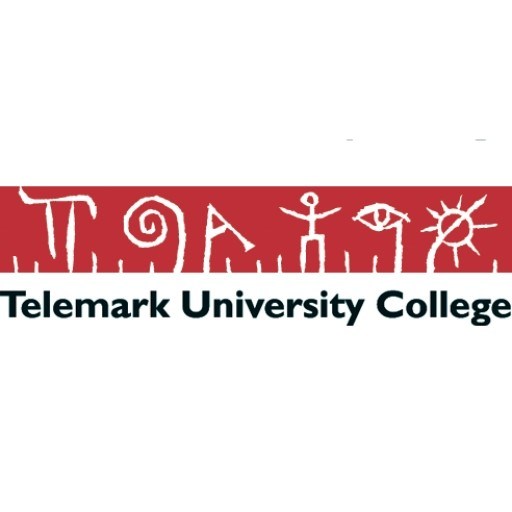Photos of university / #unioslo
Development, Environment and Cultural Change at the University of Oslo is an interdisciplinary master's program designed to equip students with a comprehensive understanding of the complex interactions between human societies and the environment. This program explores the socio-cultural, political, economic, and ecological dimensions of development and environmental change, emphasizing the importance of sustainable solutions in addressing global challenges. Students will engage with issues such as climate change, resource management, biodiversity, cultural heritage, and social justice, gaining both theoretical knowledge and practical skills necessary for research, policy formulation, and project implementation. The coursework combines insights from anthropology, development studies, environmental science, and cultural studies, fostering a multidisciplinary approach to problem-solving. Through seminars, fieldwork, and interactive projects, students will learn to critically analyze the impact of development policies and environmental changes on local communities and ecosystems worldwide. The program also encourages students to consider diverse perspectives and ethical implications associated with development initiatives and environmental interventions. Graduates will be well-prepared for careers in international organizations, NGOs, governmental agencies, research institutions, and consulting firms working at the intersection of environment, development, and cultural change. The University of Oslo’s vibrant academic community and its emphasis on research-based education provide students with excellent opportunities for collaboration, internships, and participation in ongoing projects addressing some of the most pressing issues of our time. Overall, the Development, Environment, and Cultural Change master's program offers a unique and rigorous educational experience for those passionate about creating sustainable and culturally sensitive solutions for a better world.
The Master's degree programme in Development, Environment and Cultural Change at the University of Oslo offers an interdisciplinary and comprehensive curriculum designed to explore the complex relationships between societal development, environmental sustainability, and cultural transformations. The programme aims to equip students with the theoretical knowledge and practical skills necessary to address pressing global challenges such as climate change, environmental degradation, social inequality, and cultural shifts in a rapidly changing world. Students will engage in a variety of coursework covering topics like sustainable development, environmental governance, cultural dynamics, global environmental politics, and the social impacts of environmental change. The programme emphasizes critical analysis, cultural awareness, and methodological competence, encouraging students to examine development issues from multiple perspectives, including social sciences, humanities, and policy studies. As part of the programme, students will undertake research projects and case studies that allow them to apply theoretical concepts to real-world contexts, fostering both academic and practical understanding. The curriculum also places a strong emphasis on interdisciplinary collaboration and encourages students to develop innovative solutions to complex development challenges. Opportunities for fieldwork, internships, and partnerships with relevant organizations enhance practical experience and professional networks. Graduates of the programme will be well-prepared for careers in international organizations, NGOs, governmental agencies, research institutions, and private sector companies that focus on sustainable development, environmental policy, cultural heritage, and social innovation. Overall, this master's programme prepares students to become informed, critical, and effective agents of change in addressing some of the most urgent and interconnected issues facing our global society today.
The Master’s program in Development, Environment and Cultural Change at the University of Oslo requires applicants to hold a Bachelor's degree or equivalent in a relevant field such as social sciences, humanities, or environmental studies. The program emphasizes interdisciplinary understanding and critical analysis of development issues, environmental challenges, and cultural dynamics. Students are expected to have a solid foundation in research methods and theoretical frameworks related to development studies, environmental politics, and cultural analysis. The curriculum includes compulsory courses that cover core concepts in sustainable development, cultural change theories, environmental politics, and research methodologies. Elective courses allow students to specialize in areas such as globalization, indigenous knowledge, climate change, or policy analysis.
A key component of the program is a research-based thesis, worth a significant portion of the final grade, where students demonstrate their ability to conduct independent research on relevant topics. The thesis process involves defining research questions, designing methodology, data collection, and analysis, culminating in a written report that contributes to academic scholarship. The program also encourages active participation in seminars, workshops, and fieldwork projects, providing students with practical experience and networking opportunities in development and environmental sectors.
Language proficiency requirements include demonstration of proficiency in English, typically through tests such as IELTS or TOEFL, unless the applicant’s previous education was conducted in English. The application process involves submission of academic transcripts, a statement of purpose, CV, and relevant documentation, with specific criteria for evaluation focusing on academic background, motivation, and potential contribution to the program.
The program’s purpose is to prepare graduates for careers in international development agencies, environmental NGOs, research institutions, or policy-making bodies. The interdisciplinary approach aims to equip students with analytical skills, practical tools, and a critical perspective necessary to address complex and interconnected global issues pertaining to development, environmental sustainability, and cultural change. Graduates will be able to analyze development policies, participate in sustainable project planning, and contribute to debates on cultural and environmental challenges at local, national, and global levels.
The Development, Environment and Cultural Change master's program at the University of Oslo offers diverse financing opportunities for prospective students. Tuition fees are generally not charged for students enrolled in master's programs at Norwegian universities, including the University of Oslo, as higher education is publicly funded. However, students are responsible for their living expenses, which include accommodation, food, transportation, study materials, and personal costs. The approximate cost of living in Oslo varies but is estimated to be between 10,000 and 13,000 NOK per month, depending on individual lifestyle and accommodation choices.
International students are encouraged to seek scholarships and financial aid to support their studies. The University of Oslo offers various scholarship programs for international students, including the Quota Scheme, the OSWA Scholarship, and the SI Scholarship, although eligibility criteria and availability may vary from year to year. Additionally, students can explore external funding options such as government grants, employer sponsorships, or private scholarships from organizations and foundations in their home country.
Many students apply for funding from their government, which sometimes includes short-term mobility grants or loan schemes designed for international study. The Norwegian State Educational Loan Fund (Lånekassen) provides financial support for eligible international students from certain countries, helping cover living costs and study-related expenses. To qualify, applicants typically need to demonstrate admission to a recognized program, sufficient language skills, and the ability to meet other specific criteria.
Students can also consider part-time work opportunities during their studies to supplement their income. Oslo offers a range of job opportunities in the services sector, and international students with the proper permits are generally allowed to work up to 20 hours per week during the semester. Engaging in part-time employment can help students manage their living expenses and gain valuable experience related to their field of study.
In summary, while tuition fees are waived for master's students at the University of Oslo, financing studies involves planning for living expenses and seeking appropriate scholarships or financial aid programs. The university’s support services, along with external funding sources, play a crucial role in assisting students to finance their education. Prospective students are advised to explore all available options early in the application process to ensure adequate financial preparedness for their studies in Development, Environment and Cultural Change at the University of Oslo.
The Master's degree program in Development, Environment and Cultural Change at the University of Oslo offers students a comprehensive understanding of the complex interactions between economic development, environmental sustainability, and cultural dynamics. The program is designed to equip students with interdisciplinary knowledge and analytical skills to address global challenges related to sustainable development and environmental management while considering cultural contexts. The curriculum includes a combination of core courses, elective modules, and a master's thesis, enabling students to specialize in areas such as environmental policy, social justice, cultural heritage, or climate change adaptation. Students will engage with current research, case studies, and policy debates, preparing them for careers in international organizations, NGOs, research institutions, and governmental agencies. The program emphasizes critical thinking, intercultural competence, and practical skills through project work and internships. Students also benefit from the university’s extensive network of academic collaborators and fieldwork opportunities, both within Norway and internationally. Graduates of this program are expected to contribute to sustainable development initiatives, influence policy-making, and foster cultural understanding across diverse societal contexts. The program encourages an active learning environment, integrating lectures, seminars, group work, and independent research projects. With a strong international orientation, the program attracts students from around the world, fostering a vibrant multicultural academic community. Graduates will be well-prepared to take on roles that require a nuanced understanding of environmental challenges intertwined with social and cultural changes, making a meaningful contribution to global sustainable development efforts.





